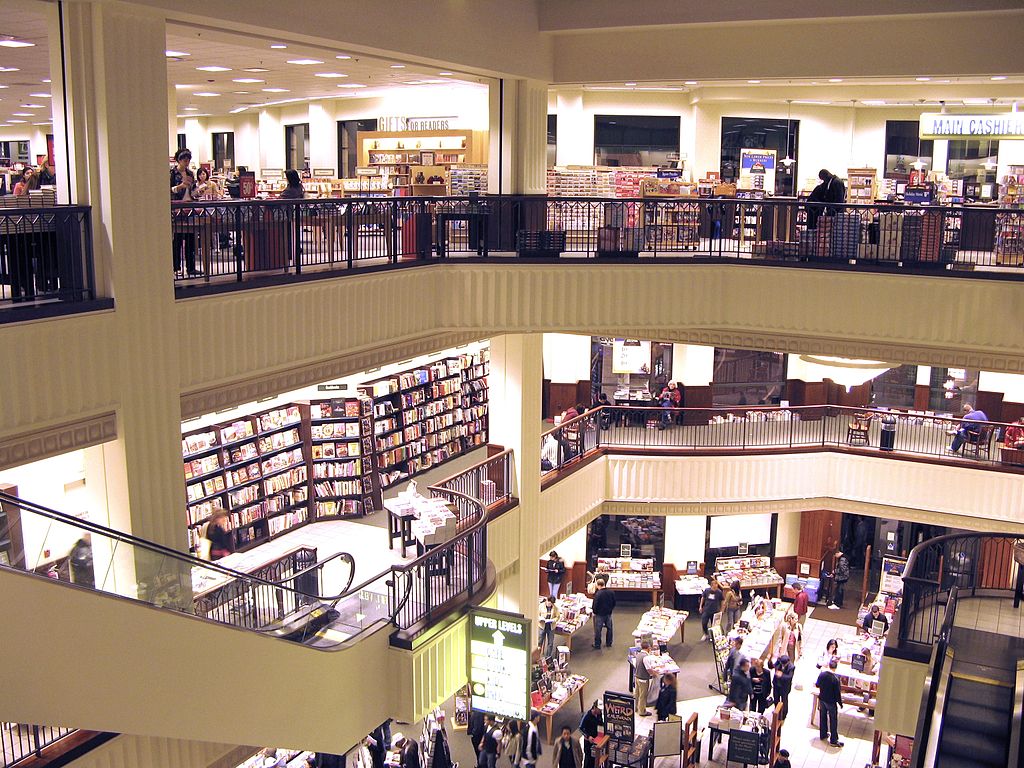
We all have childhood memories of a bookstore. Whether or not you liked to read or even wanted to be there at some point in your life, you have wandered down a narrow path lined with towering bookshelves stacked to the brim with colors and text staring back at you. In those pages, on those shelves lay thousands of stories, escapes, lessons, observations for every type of person that there is or was. There’s a magical quality to it, to being surrounded with the power to potentially learn anything with a few turns of a page.
As time has gonewent on, many bookstores have closed their doors as behemoths like Amazon have taken over the book distribution industry as we lost mom- and- pop stores left and right, and even some big chains like Borders. It seems now the only physical bookstore chain that stands tall is Barnes & Noble, who have made successful moves to keep up with the times that have managed to keep them afloat for the time being. Though the Nook may not have stacked up to the Kindle, these moves towards transforming their business (and being a staple on almost every university campus) are what has kept B&N in the game.
Smaller bookstores don’t have these resources or opportunities, so when it becomes their time, they often have little option but to close their doors, which is what has tragically happened to our near and dear Penn Book Center. Though it carries the name of our neighbor on its sign, the store is located pretty close to home, at the corner of 34th and Sansom streets to be exact.
As bigger companies like Amazon make some moves to instill physical locations, on the University of Pennsylvania campus for example, it becomes even easier for the convenience and discounts of these monoliths to eat away at the profits of smaller companies.
Universities are already a breeding ground for gentrification in a way that we have to actively combat, but these measures we can take for the sake of easing the lives of students can often come at the cost of local businesses and campus life. Penn Book Center frequently hosted literary and academic events and offered a meeting place for the literary minded from both Penn and Drexel University to consort and mingle. There was a sense of authenticity and care for products that bigger companies can’t replicate. The closing of the Penn Book Center is and serve as a loss for the student body and the city in general.
It’s admittedly hard to fight these changes, for as a university, it’s your goal to make your students lives as simple and straightforward as possibleyou can so they can prioritize studies. We should keep in mind, however, that sometimes it’s worth making compromises of ease for the purpose of supporting the community that we find ourselves living in for at least four years.
